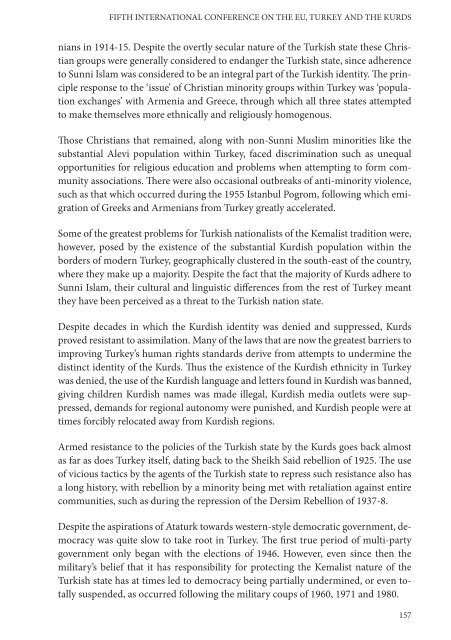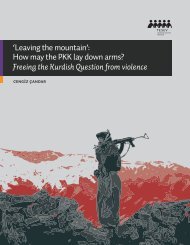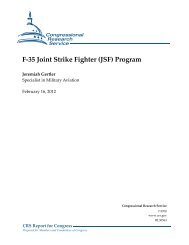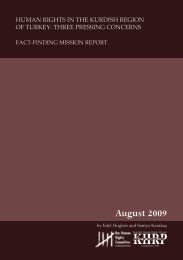FIFTH INTERNATIONAL CONFERENCE ON THE EU TURKEY AND THE KURDS
fifth international conference on the eu, turkey and the kurds
fifth international conference on the eu, turkey and the kurds
You also want an ePaper? Increase the reach of your titles
YUMPU automatically turns print PDFs into web optimized ePapers that Google loves.
<strong>FIFTH</strong> <strong>INTERNATI<strong>ON</strong>AL</strong> <strong>C<strong>ON</strong>FERENCE</strong> <strong>ON</strong> <strong>THE</strong> <strong>EU</strong>, <strong>TURKEY</strong> <strong>AND</strong> <strong>THE</strong> <strong>KURDS</strong><br />
nians in 1914-15. Despite the overtly secular nature of the Turkish state these Christian<br />
groups were generally considered to endanger the Turkish state, since adherence<br />
to Sunni Islam was considered to be an integral part of the Turkish identity. The principle<br />
response to the ‘issue’ of Christian minority groups within Turkey was ‘population<br />
exchanges’ with Armenia and Greece, through which all three states attempted<br />
to make themselves more ethnically and religiously homogenous.<br />
Those Christians that remained, along with non-Sunni Muslim minorities like the<br />
substantial Alevi population within Turkey, faced discrimination such as unequal<br />
opportunities for religious education and problems when attempting to form community<br />
associations. There were also occasional outbreaks of anti-minority violence,<br />
such as that which occurred during the 1955 Istanbul Pogrom, following which emigration<br />
of Greeks and Armenians from Turkey greatly accelerated.<br />
Some of the greatest problems for Turkish nationalists of the Kemalist tradition were,<br />
however, posed by the existence of the substantial Kurdish population within the<br />
borders of modern Turkey, geographically clustered in the south-east of the country,<br />
where they make up a majority. Despite the fact that the majority of Kurds adhere to<br />
Sunni Islam, their cultural and linguistic differences from the rest of Turkey meant<br />
they have been perceived as a threat to the Turkish nation state.<br />
Despite decades in which the Kurdish identity was denied and suppressed, Kurds<br />
proved resistant to assimilation. Many of the laws that are now the greatest barriers to<br />
improving Turkey’s human rights standards derive from attempts to undermine the<br />
distinct identity of the Kurds. Thus the existence of the Kurdish ethnicity in Turkey<br />
was denied, the use of the Kurdish language and letters found in Kurdish was banned,<br />
giving children Kurdish names was made illegal, Kurdish media outlets were suppressed,<br />
demands for regional autonomy were punished, and Kurdish people were at<br />
times forcibly relocated away from Kurdish regions.<br />
Armed resistance to the policies of the Turkish state by the Kurds goes back almost<br />
as far as does Turkey itself, dating back to the Sheikh Said rebellion of 1925. The use<br />
of vicious tactics by the agents of the Turkish state to repress such resistance also has<br />
a long history, with rebellion by a minority being met with retaliation against entire<br />
communities, such as during the repression of the Dersim Rebellion of 1937-8.<br />
Despite the aspirations of Ataturk towards western-style democratic government, democracy<br />
was quite slow to take root in Turkey. The first true period of multi-party<br />
government only began with the elections of 1946. However, even since then the<br />
military’s belief that it has responsibility for protecting the Kemalist nature of the<br />
Turkish state has at times led to democracy being partially undermined, or even totally<br />
suspended, as occurred following the military coups of 1960, 1971 and 1980.<br />
157





